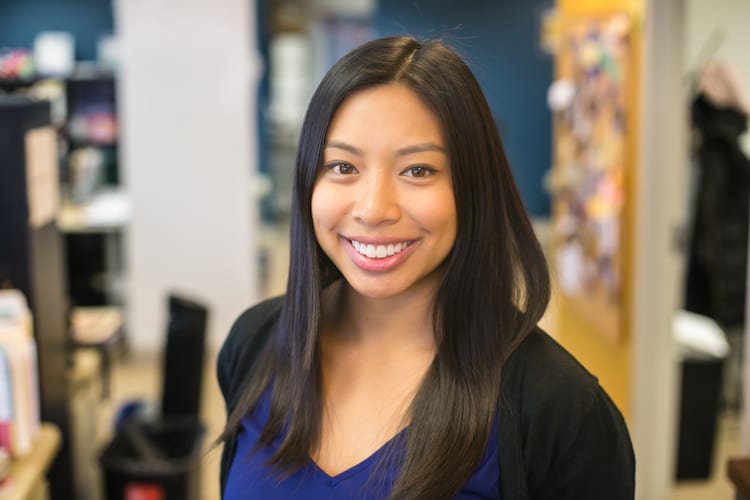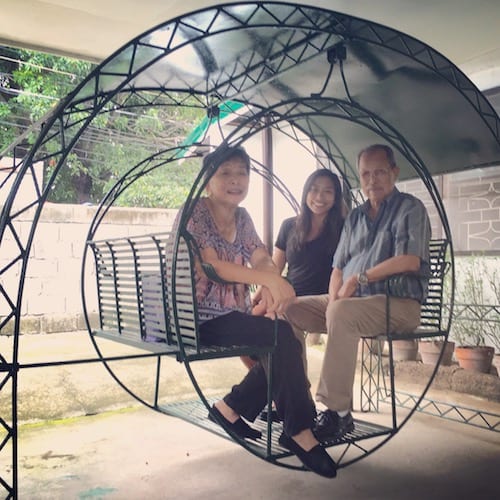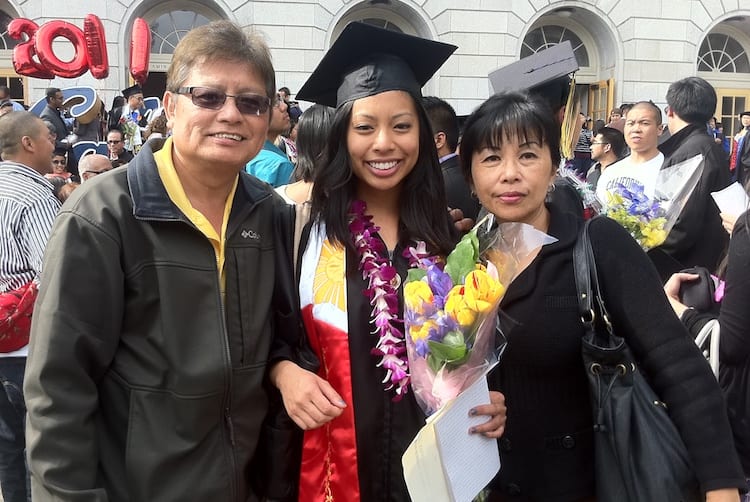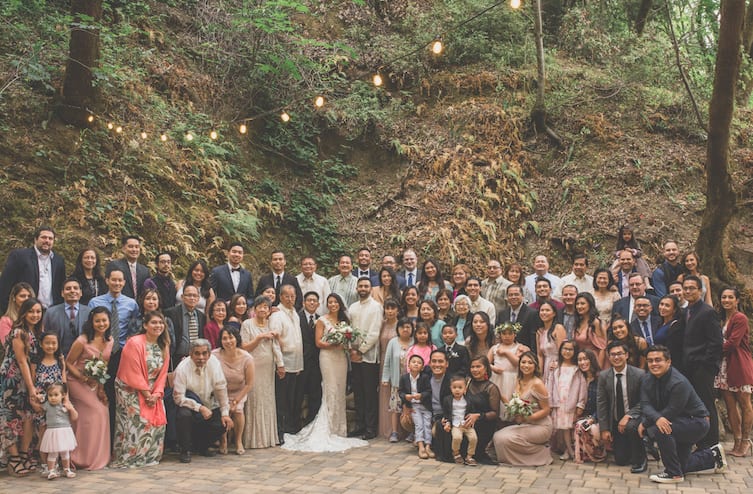
In honor of Asian Pacific American Heritage Month, we’re featuring profiles and interviews with members of our Haas community.
Catherine Start Pradhan, MBA 20, is the daughter of Pilipino immigrants. Raised in Union City, California, she went to UC Berkeley as an undergraduate, studying political economy, and quickly became involved with the Pilipino campus community. We talked to Start Pradhan about growing up in a close, extended family in ethnically diverse Union City, advocating on campus and off for Pilipinos in careers and education, and her favorite family dishes.
How did your family first come to the United States?
My maternal grandfather was recruited to the Navy and served in Vietnam. Through the Navy, my Lolo (grandpa) and grandma were able to move to the U.S., along with my aunt and my mom, who was 13 then. They initially lived on the naval base in San Diego, later moving up to the base in Alameda and settling in the Bay Area.
My paternal grandfather was recruited to the U.S. Army and served in WWII. My father moved to the Bay Area to find work after completing his engineering degree in Manila. He had been petitioned by his parents who had already moved to the U.S.

Several relatives similarly immigrated here from the Philippines, so I have a huge family who all live within a 10-mile radius of each other here in the Bay Area. That 30+ group of people in the bleachers cheering at the top of their lungs while holding a shiny banner that spelled “Catherine” at my high school graduation? That was my family.
Where did you grow up and go to school?
I was born and raised in Union City, California, a 75,000 person town about 25 miles south of Berkeley. My high school had over 4,000 students and was very ethnically diverse. In fact, my high school offered Tagalog (the Pilipino national language) as a result of the large Pilipino population in Union City and was one of the first in the country to have an ethnic studies department.
Can you talk about what the the Pilipino community is like at Cal?
There are eight Pilipino undergraduate student groups dedicated to various interests from STEM careers to culture building and collaboration within the Pilipino community at Cal was impressive. At the beginning of every year, leaders from each organization would get together for what we called calendering day, during which we looked ahead to the upcoming year and scheduled event dates so as to not host events at the same time to maximize attendance. I joined a group called Partnership for Pre-Professional Pilipinos (P4), an organization dedicated to advancing Pilipinos in law, business, and other professional fields. P4 became my family at Berkeley, and I met some of my best friends through the organization.
As an MBA student, I work with P4 members as a mentor and recently attended their flagship Professional Sunday event, an afternoon of professional development and networking sessions.

What was it like visiting the Philippines for the first time?
Growing up I had always wanted to visit the Philippines, and finally made it happen as an adult. During the summer of 2016, I worked as an intern for Edukasyon.ph, an ed-tech social enterprise focused on increasing access to higher-education opportunities for Pilipino youth. What really stood out to me was the culture of support I felt from people in the space.
I was working on a project to support Edukasyon.ph’s inclusive education efforts and on the first day of my internship, I set up over 10 meetings with people who wanted to help, and each of them connected me to several more. During my second week, I found myself invited to a meeting with community leaders from all over the Philippines who had been advocating for inclusive education policies.
That summer, my grandparents had also been visiting the Philippines, so I was lucky enough to spend time with them in their hometown, Imus, Cavite. It was surreal to meet new family and tour the places in scenes of stories my grandparents told me growing up, with them as my tour guides!
What does it mean to you to be Pilipino-American?
For me, being Pilipino-American means valuing my family and being there for them. Growing up, I spent virtually every weekend with my extended, close-knit family. We spend holidays together and hold joint birthday parties, and show up for each other for dance recitals, graduations, and more recently, births of babies. Just earlier this year, I became both a Tita (auntie) to a new nephew as well as an Ate (older cousin) to two new babies.

Of course, no family gathering is complete without an overabundance of food, another part of my culture I cherish. My favorites include my Lolo’s beef tapa, thinly-sliced grilled sirloin marinated in calamansi, (lime), soy sauce, and sugar, and my grandma’s nilagang bulalo, a hearty beef marrow stew.
What is challenging for you?
Being Pilipino-American sometimes means needing to clarify your identity. Because of the Philippines’ complex colonial history, it can be hard to place Pilipinos racially in the U.S. On several occasions, I have been mistaken for another Asian race or Latino.
Being Pilipino-American also means being resilient. Throughout history in both the Philippines and the U.S., Pilipinos have endured instances of oppression, tyranny, and inequality. Pilipinos have fought for their country’s independence, but also marched for civil rights in the U.S. There is strength and perseverance in our blood.
Finally, it means remembering where I came from. My grandparents and my mom and dad made sacrifices and brave moves to create a better life for myself and future generations, and I am where I am today because of them.
That said, I am proud of my heritage and extremely grateful for the community I’ve felt from fellow Pilipinos throughout my life. As a second generation Pilipino-American, I aim to do what I can to build that community within business, and ultimately make my family and the broader Pilipino community proud.